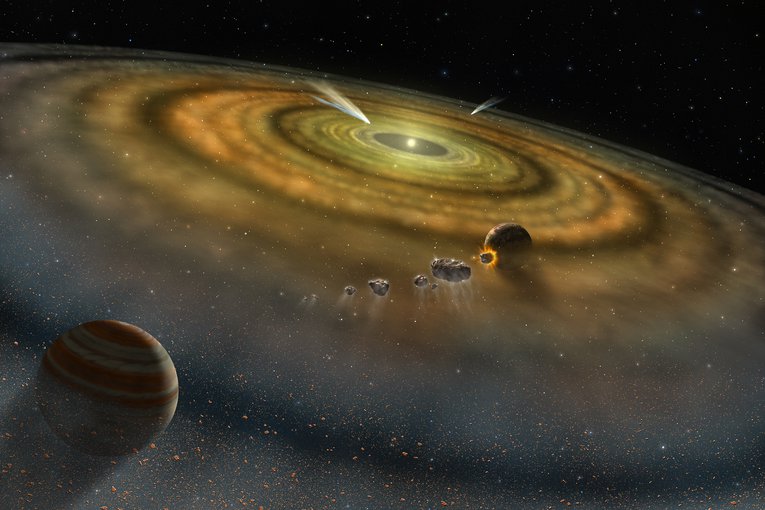
April 22, 2019
Research Highlight
The Materials that Built the Earth

Artist's conception of the dust and gas surrounding a newly formed planetary system.Image credit: NASA.
Researchers have performed the first detailed study of vanadium isotopes in both ordinary and carbonaceous chondrite meteorites. It is thought that vanadium isotopes could be used as a record of irradiation experienced by materials in the early Solar System. This information could provide insight into the early evolution of our solar system and the formation of the Earth, helping scientists better understand the conditions that allowed our planet to become habitable for life as we know it.
The team found that the vanadium isotope composition found in materials that originate from the Earth is heavier than any isotopes yet measured in meteorites. This result indicates that the current collection of known meteorites does not represent a significant portion of the materials from which the Earth was formed during its accretion in the early Solar System.
The study, “Nucleosynthetic vanadium isotope heterogeneity of the early solar system recorded in chondritic meteorites,” was published in the journal Earth and Planetary Science Letters. This work was supported by the Emerging Worlds Program. The NASA Astrobiology Program provides resources for Emerging Worlds and other Research and Analysis programs within the NASA Science Mission Directorate (SMD) that solicit proposals relevant to astrobiology research.